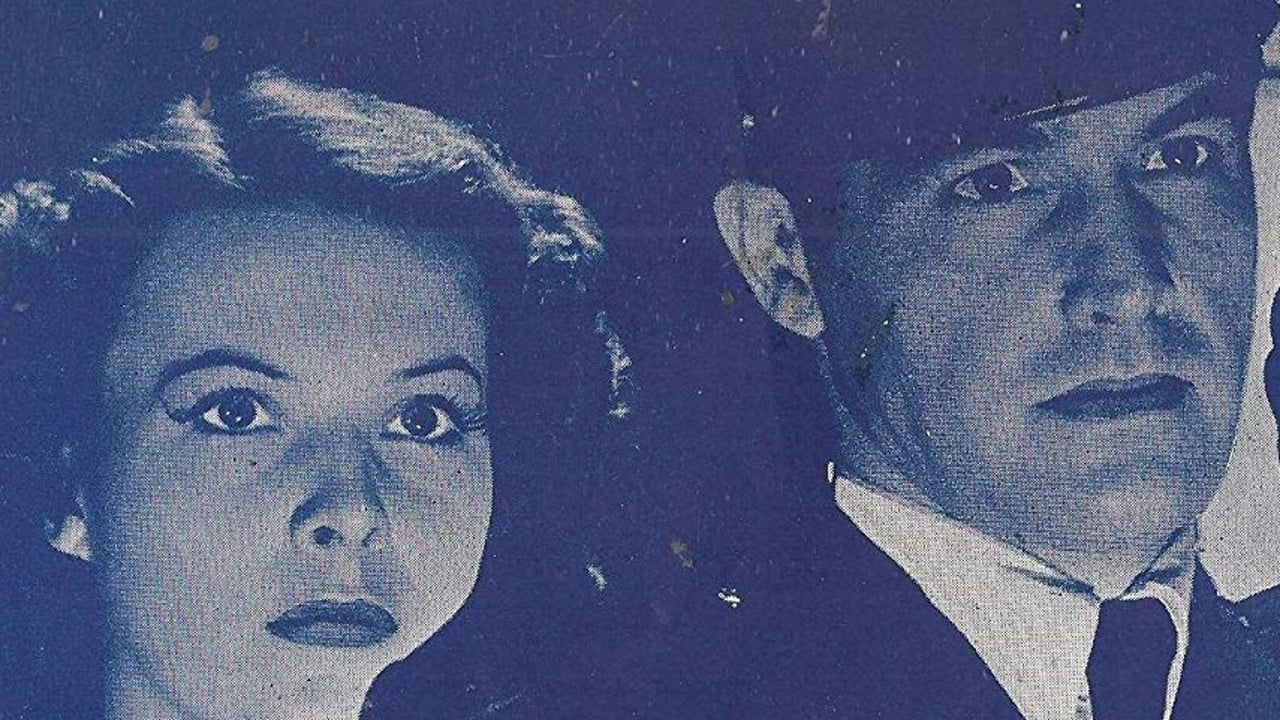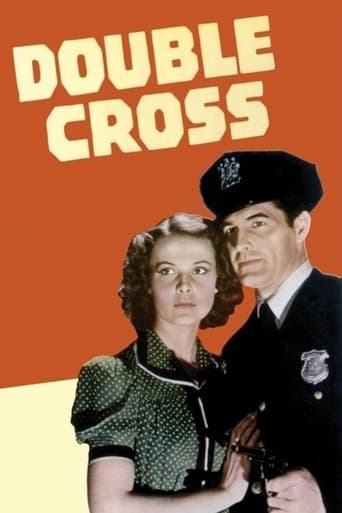

It is a performances centric movie
... View MoreThe best films of this genre always show a path and provide a takeaway for being a better person.
... View MoreGreat story, amazing characters, superb action, enthralling cinematography. Yes, this is something I am glad I spent money on.
... View MoreNot sure how, but this is easily one of the best movies all summer. Multiple levels of funny, never takes itself seriously, super colorful, and creative.
... View MoreThoroughly routine PRC programmer, filmed in dreary pedestrian style. At least some atmospherics would have compensated for a patchwork script, erratic acting, and sloppy staging— for example, note the incredible "ducking bullets is for sissies" highway shoot-out, or the rope on Jim's hands that miraculously re-ties itself. But then this is PRC and they're probably on a three-day shooting schedule. Still, I suspect that with better material and more engaged direction, the cast would have delivered more respectable results.No need to recap the plot, except that double-crosses abound. On the other hand, Richmond makes a handsome square-jawed hero, while Moore's lovely good girl Ellen resembles an unglamorized Hedy LaMarr. But above all there's Frank Moran as Cookie, with probably the friendliest ugly mug in Hollywood. They should have thrown more scenes his way since he's the movie's one notable feature. The two-shots with him and Ellen are like Beauty and the Beast and probably gave the director a few chuckles. Anyway, I can't say I didn't ask for disappointment by tuning in to what I knew was a PRC cheapo. Still, they did sometimes hit pay-dirt, as with the noir classic, Detour (1945). No such luck here. I suggest you skip this one, unless it's to catch the sublime Moran.
... View MoreWhether known by its original title, "Double Cross", or its 16mm re-issue as "Motorcycle Squad", this movie is somewhat less than "B"-movie average. Filmed on a tightwad budget from a none too exciting and not particularly involving script, and enacted by a largely boring collection of players led by Kane Richmond and Robert Homans, and including, alas, John Miljan who makes no attempt (other than to enunciate his lines clearly) to invigorate what would seem to be an ideal role, the viewer has little to engage his attention (I use the masculine pronoun advisedly) but four or five members of the support cast, especially Heinie Conklin and Frank Moran who do their best to instill some life into a limp, stale plot. Admittedly, the screenwriter also tries a couple of new wrinkles by presenting the one-track-minded Captain Murray (appropriately overplayed by prolific "Irish" policeman character-player, Robert Homans), as a somewhat unpleasant martinet. I also like the way he ties in the gangsters with the mayoral elections – standard stuff certainly, but it does provide a window for under-rated character players William Halligan and Charles Miller (as the mayors) to gain our approval. Alas, the lead player, Wynne Gibson (born 1898), is unflatteringly photographed. And our lovely heroine, Pauline Moore (who supplants Wynne Gibson on the re-issue poster), is not always photographed to her advantage either, but I guess cinematographer Arthur Martinelli did his best in the obviously limited time he had available. Director Albert Kelley is unknown to me, even though he worked in Hollywood off and on from 1918 to 1953. Available on a very good Grapevine DVD, double-billed with "Roar of the Press".
... View MoreYoung police officer Kane Richmond pretends to "go bad" in order to get in with the gang of crooks who corrupted and caused the death of his friend. Richmond even goes so far as to let his police captain father think he has disgraced the force. Things are made no less stressful by the fact that Richmond's girlfriend (Pauline Moore) has come to stay with the family since the death of her brother--that same best friend. No, it's not believable for a minute, but what the heck.Wynne Gibson is top-billed here as the co-leader of the gambling ring who intends to put her new recruit to evil use and is in turn betrayed by her partner (the ever-villainous John Miljan). Mary Gordon is earnest as always as the mother and wife of policemen.A little more levity might have livened this one up. As it turned out, it's basically an okay revenge picture whose familiar faces do more to recommend it than its plot or dialog.
... View MoreI get to watch a bunch of old time Western and Mystery/Crime flicks, and it's striking how the latter are much more unbelievable in terms of execution and common sense. While Westerns never stray very far from a tried and true hero vs villain formula, they at least carry a premise from start to finish that the viewer is able to follow pretty well. Mystery films of the Thirties and Forties on the other hand, often contain elements that simply defy any sort of credibility once they get under way. "Double Cross" starts out reasonably enough, but nosedives quicker than most with a second half that contains so much nonsense that it makes me wonder how movie audiences of the time put up with it. Of course today, it's a hoot to watch 'em, just because there's so much goofy stuff going on.Here's something that threw me in the early going, not related to the above. When I first saw the character of Steve Bronson, I would have sworn it was Jack Webb in the role. The voice was a dead ringer, and it looked like it could have been him too, although now that I check, he would have been too young at the time. Still, I had to check the credits to see what it was all about.There's no reason here to describe the story if you've seen it or read the other reviews on this board. I'd just like to point out some of the stuff to support my opening comments. Take for example, when Nick Taggart (John Miljan) nods assent to his henchmen to open fire on Police Captain Murray (Robert Homans) after Taggart leaves his office. Murray goes out of the room as another cop comes in to help out the Chief. As the bullets fly, said policeman stands up and looks out the window (first mistake), and is then struck and killed by the barrage. But when the Captain comes back into his office, the dead cop is slumped over the Captain's desk. How does that work?Later on, Silver Slipper house photographer Ellen Bronson takes a picture of the Mayor taking a bribe from Nick Taggart through a transom above Taggart's door. Even considering Nick's lame explanation of a light bulb popping, how was he able to conclude that the film in Ellen's camera was a new roll? Then there's that entire scene when Taggart gets completely fed up with his moll Fay (Wynne Gibson), the one where she smashes the recording of her confession of shooting a cop during the raid on the Silver Slipper. Taggart's henchman Cookie and Ellen are right there when he brings her to the room next door to kill her. Were they not supposed to figure out what Fay's scream was all about? But it gets better. My favorite has to do with Taggart's attempt to set up Jim Murray (Kane Richmond) with a van load of stolen furs. During the chase scene, Taggart and his boys began firing on the cops following them, and they appeared to be shooting through some sort of opening in the rear of the truck. However an exterior view of the Dollar Van revealed that the outside walls of the vehicle were solid! The cops giving chase were shooting blind into the van, and wound up killing all the mobsters inside!All of this would make my head hurt if it wasn't so downright comical. Which is why I don't take these films too seriously right from the get go. Every once in a while you get a really good crime drama from these Poverty Row productions, but more often than not, you wind up with something like this. I heartily recommend it.
... View More